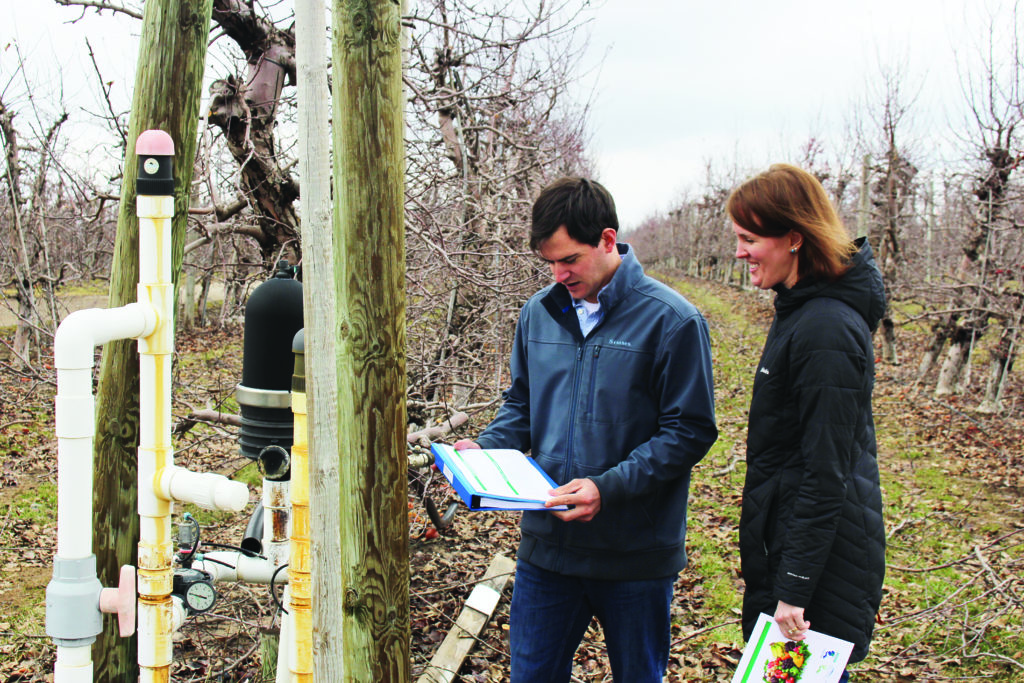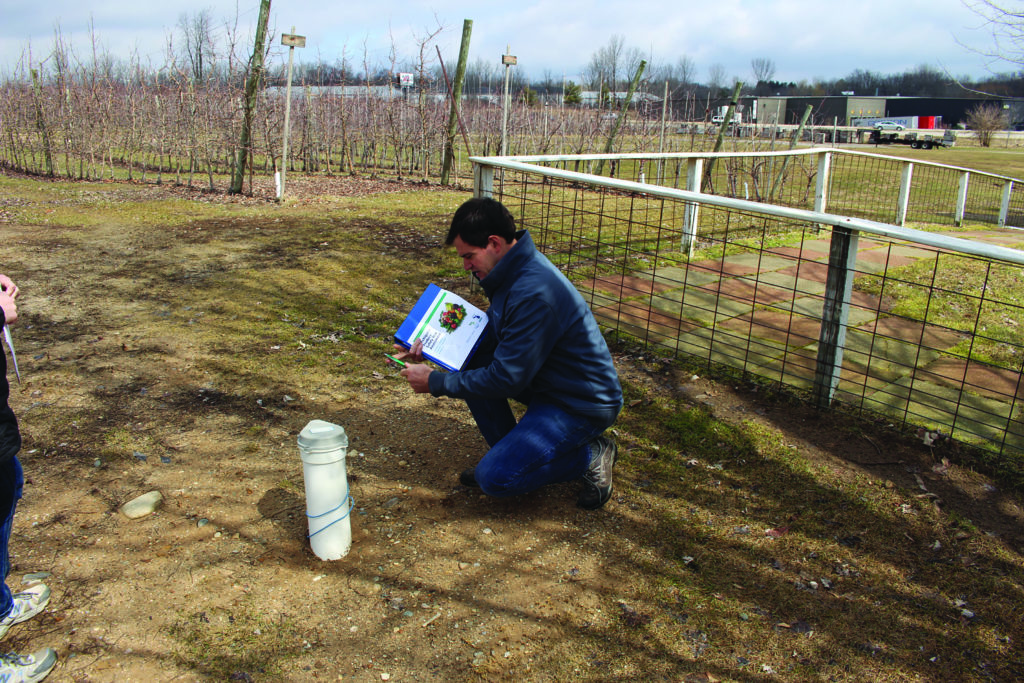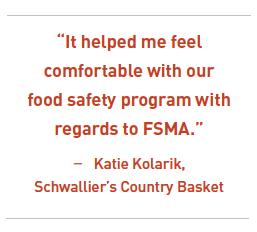

May 1, 2019On-farm review a low-pressure FSMA approach
Small growers stressing out over pending formal inspections may benefit from some practice.
On-Farm Readiness Reviews (OFRRs) offer something of a dry run or practice test for such growers.
The program has been implemented nationwide, and is a voluntary and confidential way for farms to assess their readiness for the Food Safety Modernization Act (FSMA) Produce Safety Rule. Notes from the OFRRs are left at the farm at the end of the visit.
FSMA farm inspections began for large farms this spring, while small farms have another year to get ready for them. Some are using that time to prepare.
Katie Kolarik is the food safety advisor for Schwallier’s Country Basket, a farm market near Sparta, Michigan, selling the apples, pumpkins and other produce from the farm owned by her father, Michigan State University (MSU) Extension Educator Phil Schwallier.
“It’s reassuring to me that farmers have this support network available to help them navigate the FSMA,” she said. “The on-farm readiness review was a laid-back way for us to see if we were produce safety ready. It helped me feel comfortable with our food safety program with regards to FSMA.”
Although all states offer OFFRs, there are some differences in how the state departments of agriculture implement them. Washington gives preference to growers who have completed a Produce Safety Alliance (PSA) Grower Training; California requires it for an OFFR; and in Michigan, it is strongly recommended that a PSA training be completed first.
In Michigan, OFFRs are conducted jointly with a minimum of two out of the following three agencies: The Produce Safety Team at the Michigan Department of Agriculture and Rural Development (MDARD), MSU Extension and conservation district produce safety technicians.


“Reviewers will clearly and concisely point out to the grower what things they see that they’re doing right, what they need to improve upon and give advice about how to inexpensively make corrective actions to meet new produce safety rule requirements,” said Jordan DeVries, a produce safety technician for the Newaygo Conservation District.
“One of the most common recommendations given during an OFRR is information about how to conduct a whole-farm water system inspection, which may include mapping agricultural production water sources, backflow prevention and delivery system plumbing, and then creating a water system inspection record,” he said. Michigan offers a separate, voluntary risk assessment tool for growers receiving the Produce Safety Rule qualified exemption or have fresh produce sales under $25,000 over a three-year average (2011 baseline).
One of the benefits of an OFRR is there are no penalties or enforcement actions, even for conditions that would be labeled egregious under a real Produce Safety Rule inspection. Unfortunately for growers’ schedules, the reviews are intended to be conducted when the farm is at its busiest – in other words, when harvesting and packing are in full swing.
According to literature from MDARD, it is very important that routine farm processes and operations (such as washing, packing and harvesting activities) are happening during the OFRR so reviewers can make accurate recommendations for produce safety improvements specific to the farm.
Education sessions at grower meetings across the country during the past winter invariably noted growers’ “audit fatigue” due to the many food safety audits required by produce buyers. But the reality is the OFRRs – and actual Produce Safety Rule inspections – are different from third-party audits.
As Samir Assar, director of FDA’s Division of Produce Safety in the Center for Food Safety and Applied Nutrition, said in a 2018 Q&A, “Farmers should know that meeting the requirements of private audits does not necessarily mean that they are compliant with the FSMA standards.”
OFRRs can have a much less formal structure than audits, DeVries said.
“GAP audits generally simply assess whether or not you are meeting the standard set in the audit scheme,” said Phillip Tocco, an MSU Extension food safety educator. “An auditor will specifically not tell you how to change your process to correct a particular audit requirement. Inspections and OFRRs will be much more about how you can correct deficiencies.”
To find out how to apply for an OFFR in your state, visit www.nasda.org/foundation/food-safetycooperative-agreements/on-farmreadiness-review.
– Stephen Kloosterman, associate editor
Above: Katie Kolarik is the food safety advisor for Schwallier’s Country Basket near Sparta, Michigan. Jordan DeVries, a produce safety technician for the Newaygo Conservation District, said that whole-farm water inspections are a common topic during On-Farm Readiness Reviews. Photos: Stephen Kloosterman















